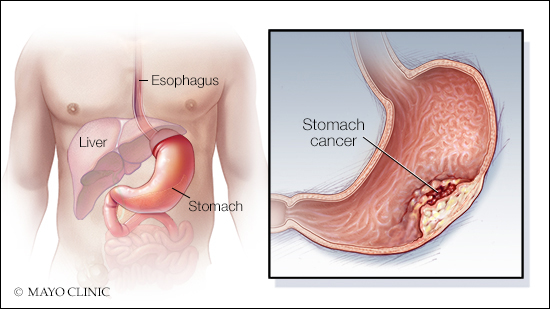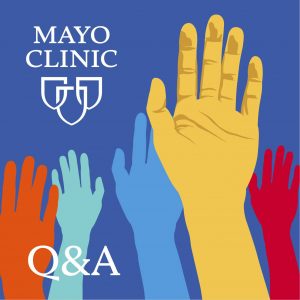
Stomach cancer, also known as gastric cancer, can affect any part of the stomach. In most of the world, stomach cancers form in the main part of the stomach. But in the U.S., stomach cancer is more likely to affect the area where the esophagus meets the stomach. This area is called the gastroesophageal junction.
Where the cancer occurs in the stomach is one factor doctors consider when determining treatment options. Treatment usually includes surgery to remove the stomach cancer. Other treatments may be recommended before and after surgery, including immunotherapy.
"Over the past three years, we've incorporated immunotherapy into the treatment of stomach cancer. This type of therapy boosts the immune system to go after the cancer," says Dr. Lionel Kankeu Fonkoua, a Mayo Clinic medical oncologist. "Cancer cells are very smart and find ways to evade or put brakes on the immune system. Immunotherapy is designed to release those brakes and unleash the immune system to go after the cancer. And when that's effective, we've seen some dramatic and durable responses in some of these patients."
November is Stomach Cancer Awareness Month. On the Mayo Clinic Q&A podcast, Dr. Kankeu Fonkoua discusses risk factors, the latest treatments and steps you can take to prevent stomach cancer.
Watch: Dr. Kankeu Fonkoua discuss stomach cancer.
For more information and all your COVID-19 coverage, go to the Mayo Clinic News Network and mayoclinic.org.








